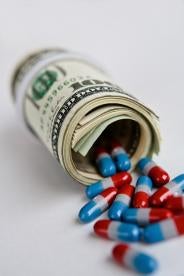On September 26, 2014, the U.S. Department of Justice (DOJ) announced that a division of CVS Health Corporation, and one of the largest pharmacy benefit management companies and retail pharmacies in the country, Caremark L.L.C., had agreed to pay the U.S. Government $6 million in settlement of a case alleging that it violated the False Claims Act by failing to reimburse Medicaid for prescription drugs purchased by “dual-eligible” individuals. The whistleblower, Donald Well, a former employee of Caremark, will be awarded $1.02 million under the qui tam provision of the False Claims Act, for exposing what he suspected to be improper practices by Caremark.
When an individual is covered by a private health insurance plan and Medicaid, the individual is considered “dual-eligible.” This means that when the individual submits a claim, their private health insurance company must first be billed for the amount of the claim. Whatever is not covered by the private insurance company can then be submitted to Medicaid for payment. This practice is mandated by Medicaid. However, Caremark, who manages the private health plans for individuals receiving prescription drug benefits under both Caremark and Medicaid, allegedly, did not follow these procedures.
According to a lawsuit filed by Donald Well, on behalf of the Government, Caremark’s RxCLAIM computer platform purportedly deducted co-payments or other sums when calculating payments on some claims. It is also alleged by Well, and the government, that this unlawful action employed by Caremark was not an oversight, but instead intentional. Consequently, Medicaid incurred prescription drug costs for “dual-eligible” individuals that should have been paid by Caremark, resulting in the alleged violation of the False Claims Act by Caremark.
Mr. Well filed the lawsuit under the whistleblower qui tam provisions of the False Claims Act, which is one of the most effective methods that the government has implemented for combating fraud. Under the FCA, any person, who knows of an individual or company that has financially defrauded the federal government, can file a “qui tam” lawsuit to recover damages on behalf of the government. Additionally, a whistleblower who files a case against a company that has committed fraud against the government,may receive compensation for up to 30 percent of the settlement. In this case, Mr. Well will receive $1.02 million plus interest for filing this lawsuit.




 i
i


